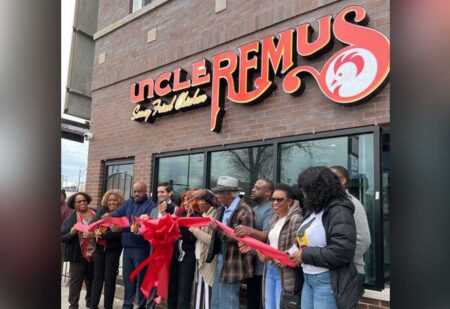John “Jack” Reed attended seminary but ended up spending 32 years with the Cook County sheriff’s police, his dogged investigative work helping in securing federal convictions in the death of Diane Masters, including her husband and police sentenced to prison in connection with her 1982 death.
A veteran of the U.S. Marines, Reed, of Orland Park, died July 22 at age 82. A visitation will be held from 3-8 p.m. Monday and starting at 9:30 a.m. Tuesday at Robert J. Sheehy & Sons Funeral Home, 9000 W. 151st Street, Orland Park.
A funeral Mass will be said at 11 a.m. Tuesday at St. Michael Church, 14327 Highland Ave., Orland Park.
Reed was portrayed by Brian Dennehy in several made-for-television movies about his career and work on the Masters case. He was dedicated to his job, taking calls at home from victims of crimes he was investigating, said his son, John, also a police officer.
“I think he heard this call to service early on,” his son said. “Dad has always had a very strong interest in scholarship, research and investigation.”
Paul Sabin, a former sheriff’s investigator who worked with Reed on the Masters case, said Reed “had this way about him that he could talk to anybody” and convince people to open up to him.
Sabin, now an attorney in private practice, worked for the sheriff for just under 14 years and said Reed “was the best partner I ever worked with, no doubt about it.”
“He was a great devoted family man, always a pleasure to work with,” Sabin said. “He was so dedicated to the sheriff’s police
Reed and his wife, Arlene, recently celebrated their 56th wedding anniversary. She had taught school for about 50 years, mostly in Burbank Elementary District 111, and the couple met when she hired Jack Reed as a driving instructor, $12 per lesson, when she was in her 20s, their son, John Reed, said.
His father worked for the Cook County sheriff’s police from 1966 until 1998, retiring as a lieutenant, although he returned for a time to see some cases through the court process, the younger Reed said.
The elder Reed was a sergeant before his promotion to lieutenant, but rather than taking on more administrative roles as he rose through the ranks, “my dad was still going out and interviewing people on cases, pounding the pavement,” his son said.
“Even as a lieutenant, he was still working cases,” he said.
The younger Reed was promoted in March to sergeant with the Naperville Police Department and said his father was able to attend the ceremony.
“I know he was very proud I went into law enforcement,” Reed said.
Likely the highest profile case his father was involved with concerned the March 1982 disappearance of Diane Masters. She was 35, and her body was found that December in the trunk of a vehicle sunk in the Chicago Sanitary and Ship Canal in Willow Springs.
Her husband, Alan Masters, a well-connected attorney in the southwest suburbs, along with then Cook County Sheriff Lt. James Keating and former Willow Springs police Chief Michael Corbitt, were convicted in June 1989 of conspiracy in her death, although no charges were ever filed in direct connection with Diane Masters’ death. Alan Masters died in federal prison in October 2000 at age 65.
At the time of her disappearance, Diane Masters was on the board of Moraine Valley Community College. A victim of domestic violence, allegedly at the hands of her husband, she helped start the Crisis Center for South Suburbia in 1978, which assists domestic violence victims.
Reed, Sabin and later investigator Robert Colby worked on the Masters case, which had languished until a federal investigation opened under the Racketeer Influenced and Corrupt Organizations Act and a federal grand jury assembled, Sabin said.
“It took months to piece everything together,” he said.
Sabin, after leaving the sheriff’s police in September 1987, was an assistant Cook County state’s attorney for 23 years before going into private practice.
“I learned so much from him, his interviewing techniques,” he said of his former partner. “He was a phenomenal human being.”
Longtime Southtown columnist Phil Kadner said he was contacted by Reed during the Masters case investigation.
“Jack Reed was a true hero,” Kadner said. “Jack Reed was better than the character they made the movies about. They didn’t do him justice.”
“He always gave credit to a bunch of other people but he was pretty important to the case being solved,” Kadner said.
Daily Southtown
Twice-weekly
News updates from the south suburbs delivered every Monday and Wednesday
The two-part NBC miniseries, “Deadly Matrimony,” first aired in the fall of 1992 with Dennehy portraying Reed and actress Susan Ruttan as Arlene.
“This is one of the few true heroes I have ever met in my life and he was bigger than the character in the TV movies,” Kadner said.
That spawned other made-for-TV movies about Reed, including 1993′s “Jack Reed: Badge of Honor,” again with Dennehy and Ruttan. Another came out in 1995, “Jack Reed: One of our Own,” and in 1996 “Jack Reed: Death and Vengeance,” also starred Dennehy, who was also writer and director.
“He and Dennehy looked a lot alike,” Kadner said of Reed. “He was a big, burly guy.”
Reed’s son said both his father and Dennehy were roughly 6 feet, 2 inches tall, and said Dennehy spent some time with Reed and his family before the original “Deadly Matrimony” went into production.
“He was a big, animated talker,” Reed’s son said of Dennehy. “My dad was not a loud, showy guy. He was humble and kind of reserved.”
mnolan@tribpub.com






